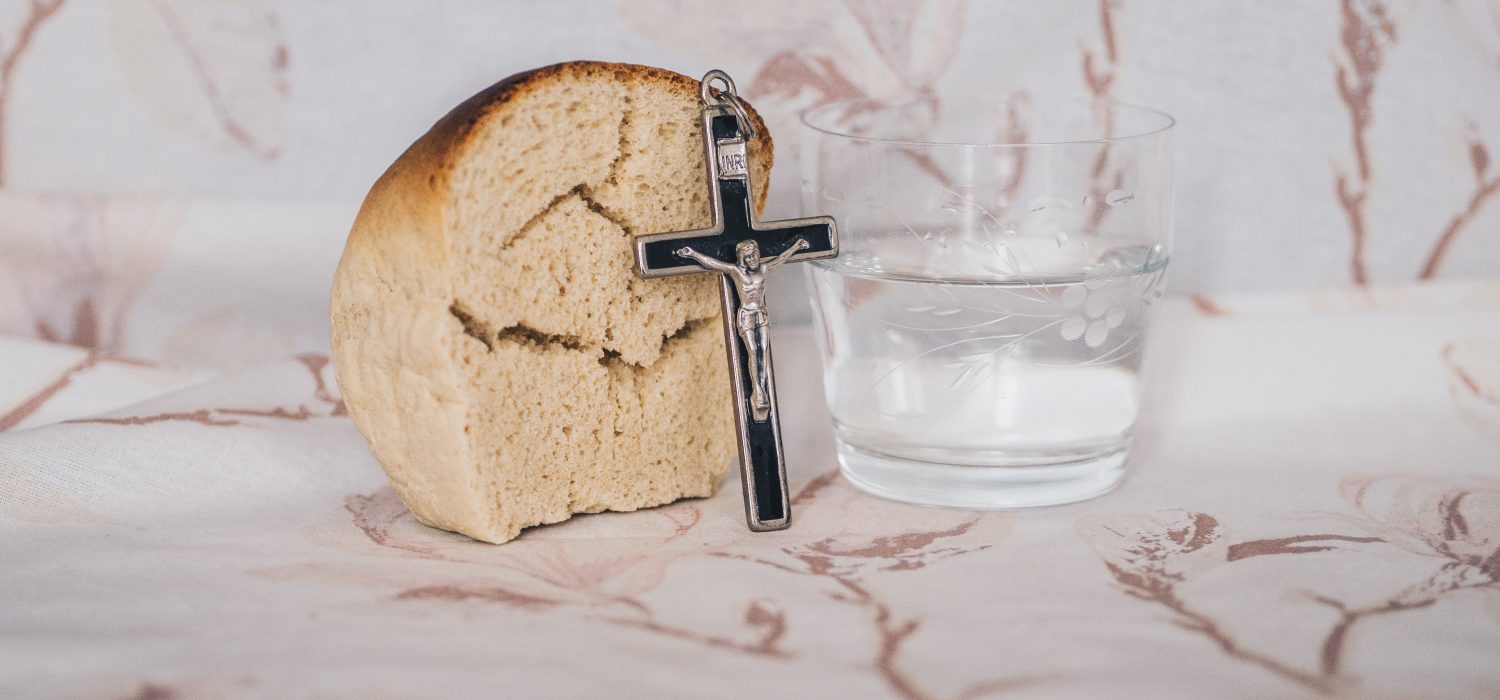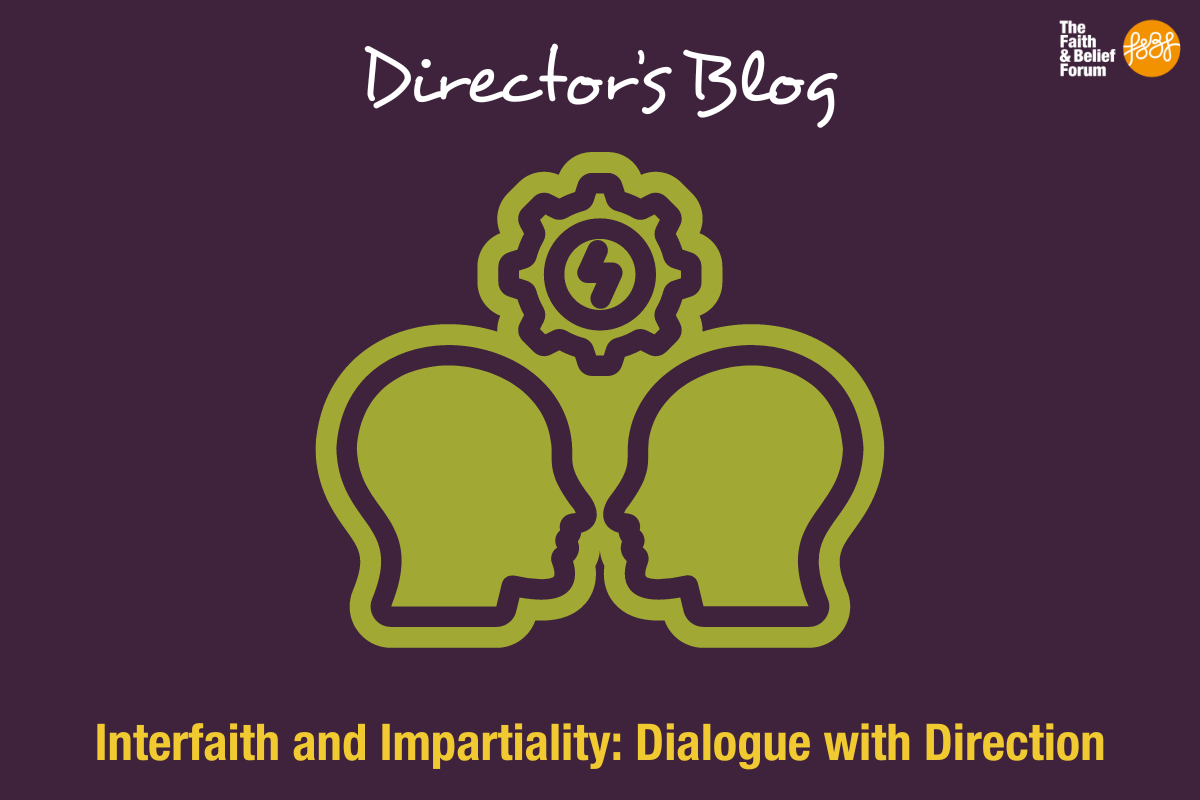
Challenging Faith Based Hate: True Stories
16 / 02 / 24
Menu

31 / 03 / 21

by Gina Dadaglo
Many religious traditions include fasting as an element of their spiritual practice. Most of the time, a period of fasting precedes a major ‘feast’, or celebration. In the Catholic faith to which I belong, the best known period of fasting is Lent, which precedes Easter, although there are other periods during which Catholics traditionally fast too. The rules around fasting have become more relaxed over time, and in most cases fasting has become an optional observance. However, fasting is a valuable part of my faith practice, and I believe it can be for others too.
There are two “types” of fasting. The first is obligatory fasting from food on Ash Wednesday (the first day of Lent) and Good Friday (the Friday before Easter). On these days, adults aged 18 to 59 may eat one small meal and two “collations”, which essentially means snacks. There are exemptions for pregnant or nursing mothers, the sick, or anyone else with a valid medical reason not to fast. These people are encouraged to choose an alternative such as fasting from technology, or choosing plain tap water to drink.
The second type of fasting is one component of the call to “prayer, fasting, and almsgiving” during the penitential seasons of Lent and Advent. In this case, people may choose to give up a particularly beloved food or drink, such as chocolate or coffee. Increasingly, people choose to fast from a non-consumable, such as social media or a bad habit. Although this can certainly be beneficial, I think there is value in choosing a food and/or drink for the fast.
In both cases, the goal should not be to lose weight. For people who struggle to have a healthy relationship with food, it is advised to choose a non-food based fast.
A simple answer to this question is tradition. We know that Christ himself fasted, as did the earliest Christians. There is something powerful about sharing a tradition with the people who have shared your faith across time and culture.
Another aspect is solidarity. Historically, Christians were encouraged to give the money they had saved by fasting to the poor, thereby fulfilling the “almsgiving” requirement too. These days, most of us are unlikely to notice a significant financial saving by giving up a favourite food, and any donation based on the saving would be paltry. However, the fact is that many people at home and abroad continue to experience food poverty. Giving up a favourite food or drink is a small way to remind ourselves how lucky we are to have easy access to food and drink, and
that there are many people who go without due to necessity, rather than choice. In these moments of remembrance, we are prompted to give thanks to God for the food we have, to pray for those without, and perhaps to make a charitable act towards those experiencing hunger.
For me, the most compelling reason is the connection between body and soul. One of the distinctive features of the Catholic faith is its understanding of how our sensory experiences are inseparable from our experience of the Divine. If you’ve ever attended a Catholic Mass, you’ll know that there’s lots of standing, sitting, and kneeling; there is usually a lot of sacred art, and shrines containing candles that represent prayers; you may notice incense, holy water, flowers, and stained glass. These things are not simply decorative or symbolic, but are an acknowledgment that humans are sensory beings and that the way we use our bodies and connect to our surroundings impacts the way we relate to God.
As such, Catholic tradition has long held that self-denial of the body renders a penitential spirit appropriate during Lent, and that being disciplined with our bodies can help us be disciplined in spiritual matters – if we are able to say no to that inviting slice of cake then we are using the same “spiritual muscle” that allows us to say no to behaviours such as gossiping, impatience, or egoism. One of the prayers used during a Lenten Mass says, “Look kindly, Lord, we pray, on the devotion of your people, that those who by self-denial are restrained in body may by the fruit of good works be renewed in mind.” Throughout the season of Lent, many of the prayers and Bible readings remind us of this connection between body and soul, and that self-denial of the body is not a superficial or arbitrary act but a way of deepening our relationship with God.
As mentioned above, the major feasts of the liturgical year are preceded by periods of fasting. This is another example of how the Church recognises the connection between our physical and spiritual lives: a feast is much more meaningful and enjoyable if we prepare for it by a fast, even if it’s only a short one. Secularised celebrations of days like Christmas and Easter tend to focus exclusively on the feast: the food and drink, the parties, the gifts… Whilst these things can of course be enjoyable without a preceding fast, it undeniably detracts from the depth of joy that
these feasts have historically held.
In many ways, these rhythms reflect our passage through life. We go through periods “in the desert” when we suffer great hardship, sorrow, and longing for better days. It is often in these times that we grow in self-knowledge, in compassion for others, and in the search for meaning beyond our material circumstances. These periods give more meaning and gratitude to times of joyfulness and abundance. We do not get a choice in this; no one makes it through life without both profound sorrow and intense joy. By choosing to fast before we feast, we acknowledge that
neither our physical nor our spiritual lives can be truly rich unless we weather the hard times, too.

16 / 02 / 24

15 / 02 / 24

16 / 01 / 24